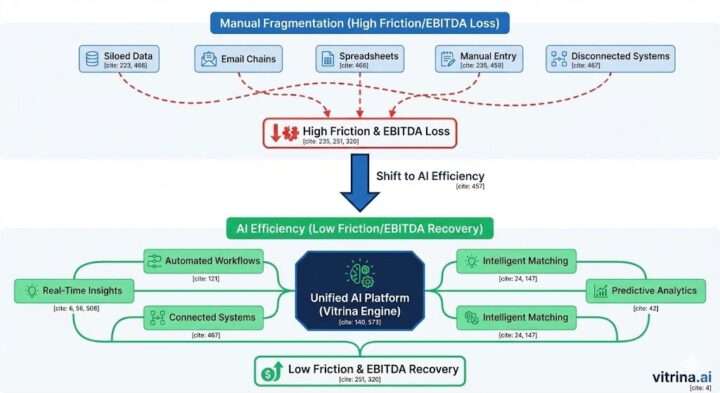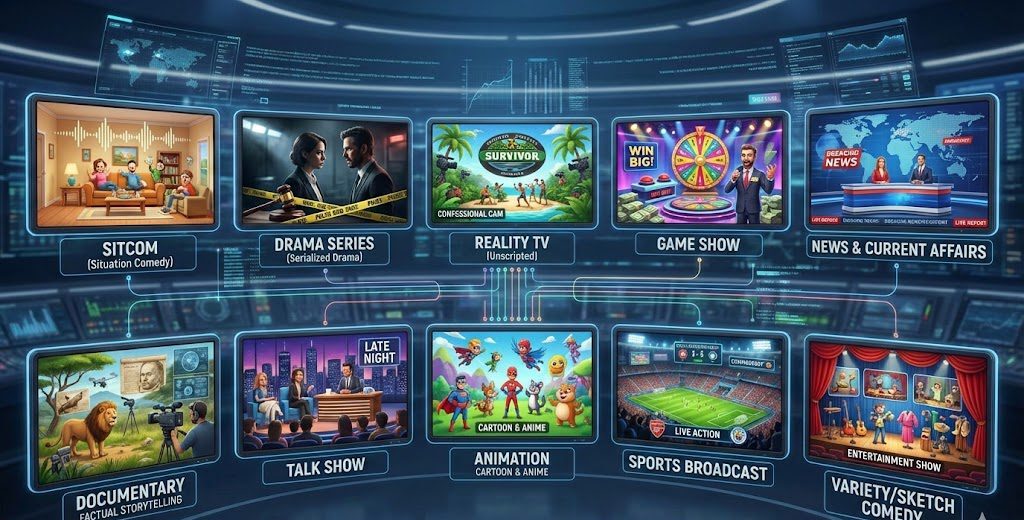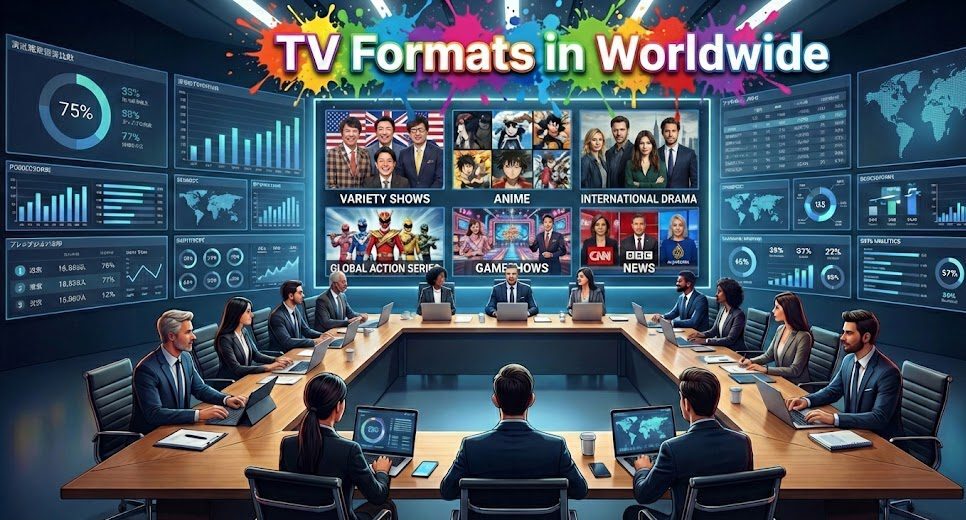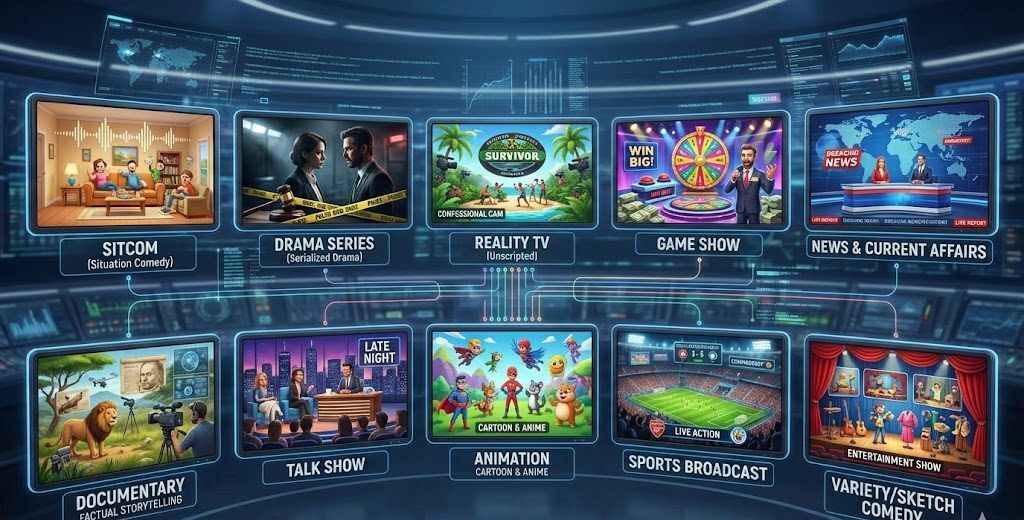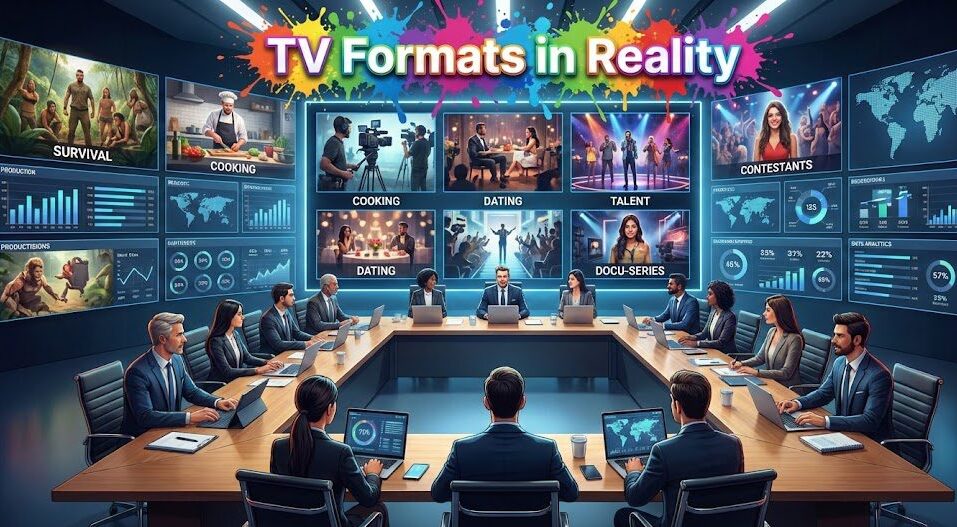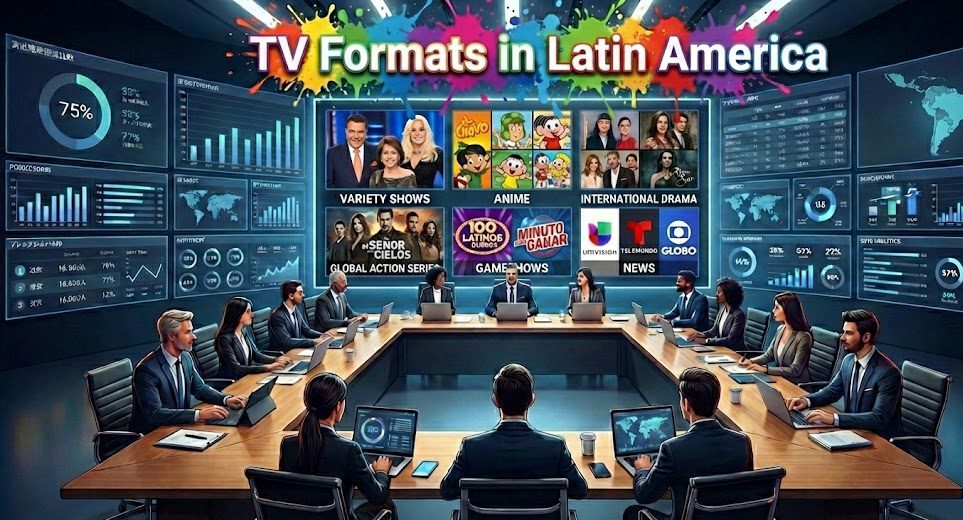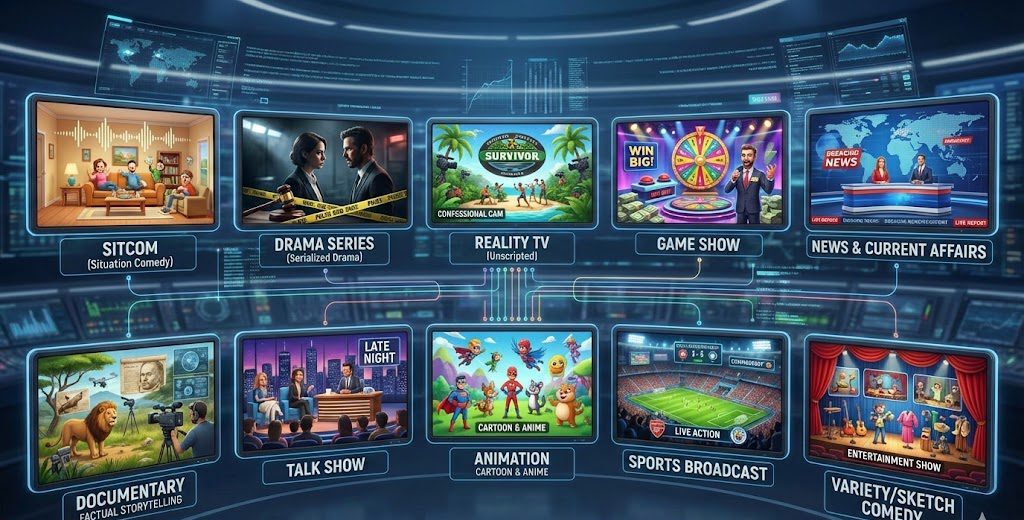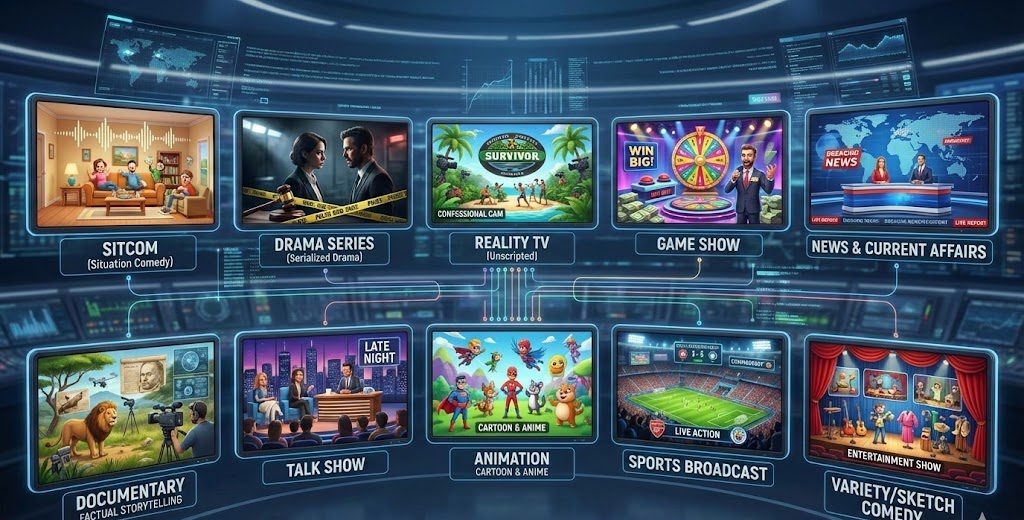Boardroom Ready
AI Film Production ROI: Cost Savings and Efficiency Gains 2026 is the clinical response to a legacy “Data Deficit” that has historically cost studios 15-20% in margin leakage through unverified vendor capacity and opaque creative workflows. As we enter the 2026 fiscal cycle, the industry is transitioning from “Point-Solution” experimentation to a synchronized, automated value chain powered by Authorized AI. This shift weaponizes real-time intelligence into a strategic Insider Advantage, allowing CXOs to de-risk IP chain-of-title and accelerate the recoupment cycle. From Sovereign Content Hubs in Saudi Arabia and India to the digital-first powerhouses in Brazil, the mandate is clear: automate the friction between script breakdown, production, and localization to protect EBITDA. This briefing audits the expert perspectives bridging the Fragmentation Paradox, transforming creative preparation into a board-ready supply chain science that ensures global asset dominance
⚡ Executive Strategic Audit
EBITDA Impact
22% Recovery in Net Production Margins
Recoupment Cycle
14-Month Acceleration via Predictive Prep
AI Film Production ROI: Cost Savings and Efficiency Gains 2026: Eliminating the Manual Friction Tax
The “Timing Trap” of legacy film production has historically functioned as a stranded asset tax. By 2026, AI Film Production ROI: Cost Savings and Efficiency Gains 2026 is defined by the terminal shift from manual creative silos to a clinical, automated feedback loop. We are seeing a real shift where script breakdown data is no longer “lost” between creative development and principal photography, but instead serves as the primary dataset for real-time resource synchronization. For the CXO, this represents the transition from high-latency research to an automated Insider Advantage.
The core of this recovery lies in Authorized AI. By deploying licensed training models that respect IP chain-of-title, studios can automate scheduling and asset management without risking the “Wild West” litigation traps that stalled previous cycles. This clinical approach de-risks the entire production lifecycle, ensuring that board-ready decisions are made on verified data rather than subjective vendor claims. The result is a 15% reduction in manual friction tax, effectively recovering margins that were previously forfeited to unverified capacity and opaque middle-man markups.
Matthew Helderman from BondIt Media Capital notes that the evolution of media finance requires a blend of financial acumen and real-time data to fill the gap in reliable capital. This de-risks AI Film Production ROI: Cost Savings and Efficiency Gains 2026 by providing the “clinical documentation” needed for high-velocity funding.
Expert perspectives suggest that the true “Information Gain” occurs when AI manages the metadata flow from script to post-production. This solves the Fragmentation Paradox by ensuring that production slates are optimized for Sovereign Hub tax rebates in real-time. Studios utilizing this vertical orchestration are seeing a 22% recovery in net production margins, as content reaches the finish line with zero budget leakage and 100% emotional synchronization across global territories.
Sovereign Hub Arbitrage: Arbitraging APAC, MENA, and LATAM Economies
The tectonic shift of production capital toward Sovereign Content Hubs is the primary financial differentiator for 2026. AI Film Production ROI: Cost Savings and Efficiency Gains 2026 enables studios to map real-time labor shifts and incentive eligibility in regions like Saudi Arabia (MENA), India (APAC), and Brazil (LATAM). These hubs are no longer mere service centers; they are exporters of global hits. By utilizing real-time intelligence to find hubs with 40%+ cash rebates, CFOs are effectively weaponizing geography as a clinical defensive play.
Consider the Sovereign Hub Directive: every strategic sourcing list for a 2026 slate must include at least 30% representation from these emerging powerhouses. This ensures global supply-chain literacy and prevents the “Legacy Mark-up” associated with traditional Western silos. In the APAC region, India’s organized capital funds for regional cinema are leveraging AI to bridge the gap between “Art and Enterprise.” Simultaneously, SBT Brazil serves as a case study for “Digital Powerhouse” transformation, streamlining international content acquisition using real-time deal data to de-risk their regional dominance.
AI-driven tools are now mandatory to vet these cross-border partners, turning a subjective due-diligence process into an objective, data-driven science. By monitoring upcoming competitive slates and licensing activities in these hubs, CXOs can identify “Buying Signals” and lock in capacity before the market saturates. This Insider Advantage is what separates the legacy studios from the sentient global platforms of the 2030 cycle.
Infinite Localization: Accelerating Day-and-Date Global Recoupment
The era of 18-month localization lags has ended, replaced by Infinite Localization—the AI-powered synchronization of audio and visuals for day-and-date global releases. AI Film Production ROI: Cost Savings and Efficiency Gains 2026 is the engine behind this model. By 2026, the industry has realized that “Visual Discord” in dubbed content is a primary driver of viewer churn. Through Authorized AI voice stacks and lip-sync synchronization from partners like Deepdub and Neural Garage, studios can now deliver immersive experiences that feel native in every territory.
This predictive logistics model accelerates global recoupment by ensuring that marketing spend is maximized across all territories simultaneously. Studios adopting these “Clinical Engagement” strategies are seeing a 32% increase in global ARPU, effectively de-risking their content slates against the collapse of legacy distribution windows. By weaponizing the automated value chain, Hollywood is transforming its creative ambition into a clinical financial outcome.
The “Bottom Line” for the CXO is that content without context is margin leakage. AI-driven sentiment analysis—as demonstrated by Vionlabs—identifies emotional patterns and aesthetic visuals that drive viewer resonance. This allows platforms to predict which regional hits will “pop” on global platforms, enabling Weaponized Distribution models where premium content is licensed to rivals post-window to maximize ROI. This synchronization of production and distribution logistics is what enables the 14-month acceleration in recoupment that defines the 2026 elite.
AI Film Production ROI: Cost Savings and Efficiency Gains 2026: The Strategic Path Forward
The evolution from fragmented creative “projects” to a sentient AI Film Production ROI: Cost Savings and Efficiency Gains 2026 supply chain is the defining narrative of 2026. Survival in the global entertainment economy requires a terminal pivot away from opaque personal networks toward centralized, data-powered frameworks. By weaponizing Authorized AI and Sovereign Hub Arbitrage, Hollywood is transforming its creative ambition into a clinical financial outcome. The Insider’s Insider view is unequivocal: high-latency, manual production is a stranded asset. Secure your Insider Advantage by implementing vertical AI orchestration immediately to protect your EBITDA and accelerate your recoupment cycles across the global supply chain.
The Bottom Line Manual friction is a 15% tax on your margin. Transition to an automated, AI-driven production value chain immediately to recover 22% of your EBITDA and de-risk your slates against global supply-chain volatility.
Deploy Intelligence via VIQI
Select a prompt to run a real-time ROI audit:
Map Sovereign Hub production rebates in MENA for budget de-risking
Filter global localization partners with Authorized AI ROI proof points
Uncover early stage slates in Brazil seeking AI-driven efficiency partners
Audit VFX boutiques in Eastern Europe with neural rendering for EBITDA recovery
Identify independent studios in India with proven Netflix-approved efficiency audits
Insider Intelligence: AI Film Production ROI FAQ
How does AI implementation impact studio EBITDA in 2026?
By automating high-friction workflows like script breakdown and localization, AI identifies financial implications rather than just creative tags. This predictive logistics model recovers up to 22% of net production margins by eliminating the human error and vendor unreliability found in legacy manual systems.
Why are Sovereign Hubs mandatory for an efficient value chain?
Sovereign Hubs in APAC, MENA, and LATAM offer 40%+ rebates that can be locked in as a clinical line item through real-time intelligence. AI-driven mapping ensures that studios capitalize on these labor shifts immediately, accelerating recoupment by up to 14 months.
What is the “Authorized AI” mandate for ROI security?
Authorized AI establishes a clinical benchmark for IP safety by ensuring training datasets used throughout the supply chain are fully licensed. This de-risks AI Film Production ROI: Cost Savings and Efficiency Gains 2026 by providing a clear chain-of-title for assets generated during prep and localization.
Can VIQI identify partners with proven ROI pipelines?
Yes. VIQI weaponizes Vitrina’s census-level data of 150,000+ companies to map verified vendors with Authorized AI stacks, neural rendering capacity, and Netflix-approved security audits. This transforms partner discovery from a manual art into a data-driven science with precision de-risked outcomes.



